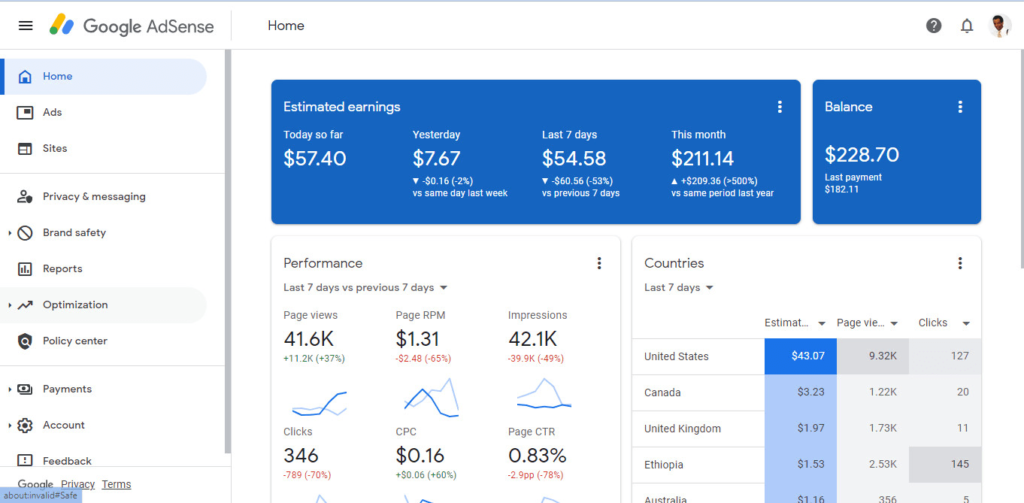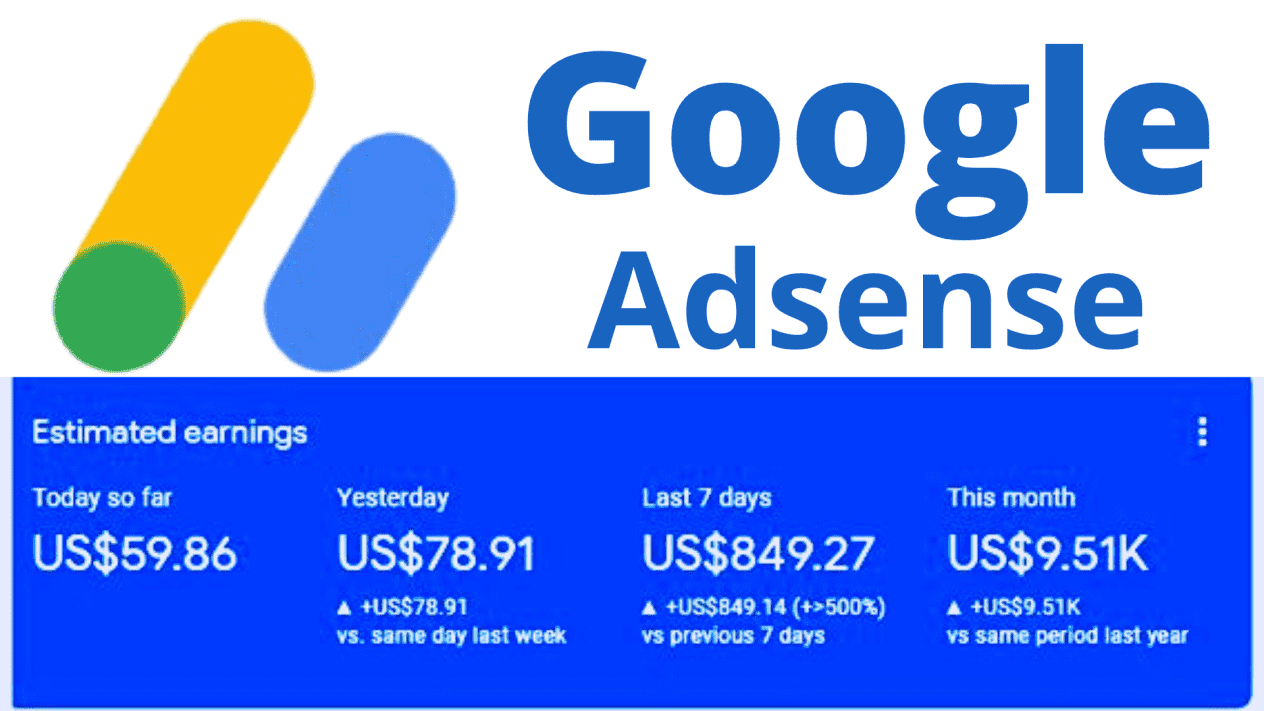What is AdSense Loading?
Users may interact with displayed ads by clicking on them, which may lead to the advertiser’s landing page or desired action. Website owners earn revenue based on the number of ad impressions and user clicks generated.
AdSense loading is a dynamic and automatic process that ensures relevant and engaging ads are display to website visitors. It enables website owners to monetize their content while allowing advertisers to effectively reach their target audience. AdSense loading helps create a symbiotic relationship between publishers, advertisers, and consumers, contributing to a thriving online advertising ecosystem.
Understanding AdSense Loading
AdSense loading refers to the process of displaying ads on a website or digital platform through Google AdSense. Google AdSense is an advertising program that allows website owners and publishers to earn revenue by displaying relevant ads on their web pages.

When a web page with AdSense ads loads, there are several steps:
Ad Request:
The web page sends a request to the AdSense server, indicating available ad slots and related user information.
Ad Auction:
The AdSense server conducts an auction between advertisers to determine which ads are the most suitable for the available slots. The auction considers factors such as bid amount, ad relevance, and user browsing behavior.
Ad Selection:
Based on the results of the auction, the AdSense server selects the winning ads to display on the web page. These ads are selected based on the highest bid and relevance to the page content.
Ad Loading: Selected ads are fetched from the AdSense server and loaded on a web page instead of designated ad slots.
Display Ads:
Loaded ads are displayed to visitors when they view a web page. Ads may appear as banners, text ads, or other formats, depending on the layout and placement chosen by the website owner.
Advantages of loading
Adsense loading, the process of displaying ads through Google Adsense on websites or digital platforms, offers several benefits to both website owners and advertisers. Here are some key benefits.
- Monetization
- Easy Implementation
- Relevant Ads
- Potential for increased revenue
- User-Friendly Experience
- Ad Performance Tracking
- Wide range of ad formats
Advantages of loading in detail
Monetization: AdSense Loading allows website owners and publishers to monetize their content by earning revenue from ads displayed on their web pages. This provides an opportunity to generate passive income and support website maintenance and development.
Easy Implementation: Integrating AdSense loading into a website is relatively straightforward. Google provides easy-to-use tools and resources that simplify the setup process, making it accessible even without extensive technical knowledge.
Relevant Ads: Adsense loading ensures that the ads displayed are relevant to the content and interests of the website visitors. Ads are selected based on factors such as website location, user demographics, and browsing behavior. This relevance increases the chances of attracting user engagement and generating clicks.
Potential for increased revenue: AdSense loading uses an auction system where advertisers compete for an ad slot on a website. This competition can increase ad bids and potentially increase revenue generated for website owners, especially those with high traffic and valuable audience demographics.
User-Friendly Experience: AdSense Loading aims to provide a positive user experience by displaying ads that are not intrusive or disruptive to the content of the website. Ads are designed to blend seamlessly with the website layout, maintaining a user-friendly environment while serving relevant ads.
Ad Performance Tracking: AdSense provides comprehensive performance tracking and reporting tools. Website owners can access real-time data on ad impressions, clicks, and earnings. This data allows them to analyze and optimize their ad placements, content strategy, and user experience to maximize revenue potential.
Wide range of ad formats: AdSense Loading supports various ad formats, including text ads, display banners, responsive ads, and native ads. This capability gives website owners the flexibility to choose the most suitable ad formats according to their website design and user experience.
Disadvantages of loading
Errors of loading losses
Although AdSense loading offers many benefits, there are a few drawbacks or potential pitfalls associated with the process.
Ad blockers: Some Internet users, however, utilize ad-blocking software or browser extensions that block the display of advertisements. Consequently, this can lead to a significant loss of potential ad impressions and revenue for website owners.
False Clicks and Click Fraud: AdSense loading is susceptible to false clicks or click fraud, whereby individuals or automated bots deliberately generate clicks on ads to boost revenue. Consequently, this unethical practice can lead to penalties, revenue losses, or even account suspension for website owners.
Ad blindness: Over time, consumers can develop ad blindness, where they unconsciously ignore ads that are display or ignore them due to repeated exposure. This can reduce the effectiveness of ad campaigns and potentially reduce click-through rates and revenue.
Lower click-through rates: Some website visitors may simply ignore or choose not to interact with ads, resulting in lower click-through rates. This can affect the revenue potential for website owners, especially if their content or audience does not align well with the products or services advertised.
Impact on website performance: Displaying advertisements on a website can affect its loading speed and overall performance. If the ads are not optimized or if the website hosting resources are insufficient, it can significantly slow down the page load time, consequently negatively impacting the user experience. Consequently, this can potentially result in visitor inactivity and diminished satisfaction.
Limited control over ad content: While AdSense provides a mechanism to filter certain types of ads, website owners have limited control over the specific ads displayed on their pages. In some cases, ads that are irrelevant or not aligned with the website’s values or target audience may still appear, potentially affecting the overall user experience.
Note: It is important for website owners to carefully consider these potential pitfalls and implement strategies to mitigate any associated damage. This may include monitoring ad performance, staying updated on ad-blocking trends, implementing anti-click fraud measures, and improving the overall user experience of the website.

